Pancreatic Cancer
What Is The Duty Of The Pancreas?
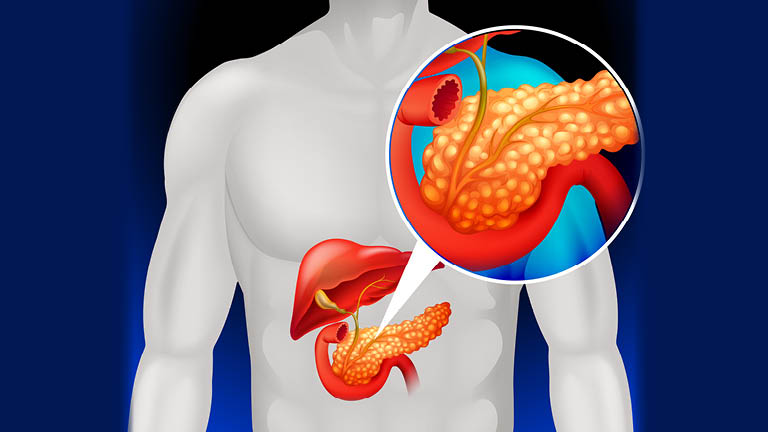
The pancreas is an important organ that provides the opportunity to consume food in a healthier way with many different tasks. It is among the organs that directly contribute to situations such as separating and digesting nutrients. For this reason, the pancreas must be healthy so that it can function regularly.
- It regulates the blood sugar level.
- It produces a special secretion in order to release the food in the food in order to keep the person in shape.
- It contributes to digestion by producing enzymes.
- Lipase breaks down fatty substances.
- It decomposes proteins.
- Breaks down carbohydrates to produce high-energy sugar.
Pancreatic Cancer Is An Insidious Disease
Pancreatic cancer often doesn’t show symptoms until it reaches the advanced stages of the disease. For this reason, there typically aren’t any early signs of pancreatic cancer;
- Abdominal (stomach) or lower back pain
- Recent-onset diabetes
- Jaundice (yellow skin and eyes)
- Changes in stool
- Dark urine color
- Unintentional weight loss
- Loss of appetite
- Fatigue
- Depression
- Blood clots
What Is Pancreatic Cancer?
The pancreas is a secretory organ located in the back of the stomach, producing the enzymes that necessary for digestion and transferring it to the duodenum, which is the first part of the small intestine, through its channel. Additionally producing hormones that are necessary for the regulation of blood sugar. The uncontrolled division of the cells that make up the pancreas into a tumor is called pancreatic cancer.
How Does Pancreas Cancer Occur?
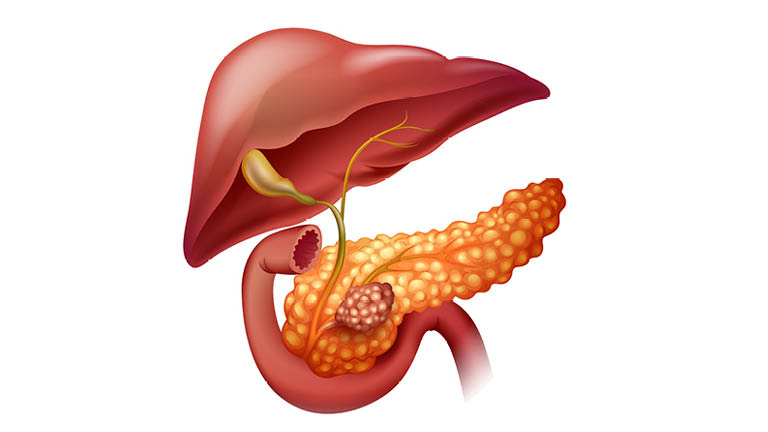
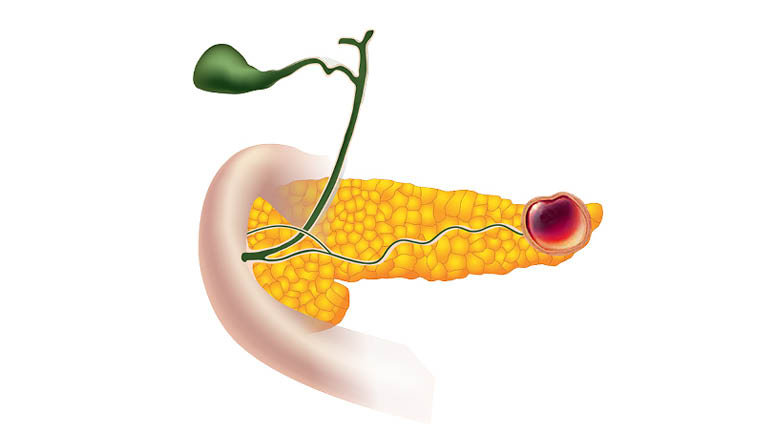
Pancreatic cancer occurs when cells in your pancreas develop mutations in their DNA. These mutations cause cells to grow uncontrollably and continue to live after normal cells die. These accumulating cells can form a tumor. Untreated pancreatic cancer spreads to nearby organs and blood vessels.
Many pancreatic cancers begin in the cells that line the pancreatic ducts. This type of cancer is called pancreatic adenocarcinoma or pancreatic exocrine cancer. Rarely, cancer occurs in hormone-producing cells or neuroendocrine cells in the pancreas. These types of cancer are called islet cell tumor, pancreatic endocrine cancer, and pancreatic neuroendocrine tumors.
What Are The Symptoms Of Pancreas Cancer?
Pancreatic cancer is rarely noticed in the early stages. But in people with a pancreatic cyst or a family history of pancreatic cancer, certain screening tests can help detect the problem early. Pancreatic cancer can manifest itself especially with weight loss, jaundice or upper abdominal pain, diabetes, and its signs and symptoms usually do not appear before the disease reaches advanced levels. These:
- Back pain in the upper abdomen
- Loss of appetite or involuntary weight loss
- Depression
- New onset diabetes
- Bood clot
- Weakness
- Yellowing of your skin and whites of your eyes (jaundice).
See your doctor if you experience unexplained weight loss or if you experience persistent weakness, abdominal pain, jaundice, or other signs and symptoms that bother you.
Who’s At Risk For Pancreatic Cancer?
Although the exact cause of pancreatic cancer is not known, tobacco use, being overweight, diabetes, chronic pancreatitis (excessive alcohol consumption), exposure to certain chemicals increase the risk of developing pancreatic cancer.
Age and genetic factors are another important risk factors. Men are more likely to have pancreatic cancer than women.
Vascular Invasion of Pancreatic Cancer?
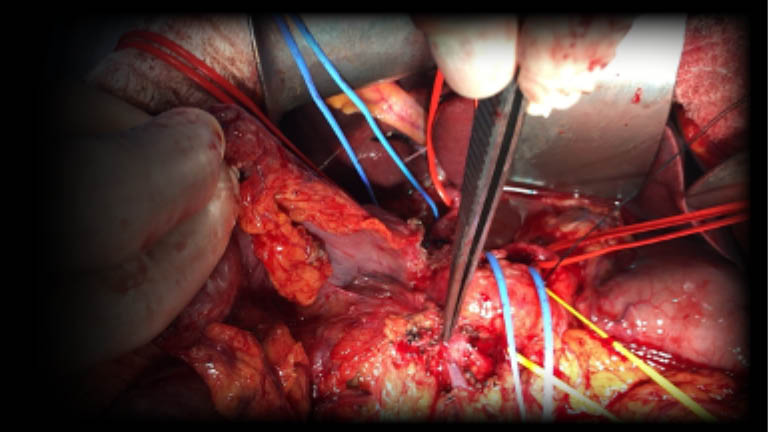

Pancreatic cancer, unfortunately, is a disease that starts insidiously and is noticed late. For this reason, limited number of patients can catch up the chance of surgery. The pancreas is closely adjacent to very important vessels. One of the most important factors that prevent surgery is the invasion of tumor to that vessels. If cancerous tissue has spread to the vein, which we call the portal vein, it is possible to remove that vein with the tumor by advanced surgical techniques. Since it is technically difficult, this operation can only be performed in specialized centers and by experienced surgeons.
Surgical Procedures For Pancreatic Cancer?
The most common surgery in pancreatic cancer is known as the Whipple procedure (pancreaticoduodenectomy) and is performed in patients where the tumor is located in the head of the pancreas.
In pancreatic cancer, it may be necessary to remove the entire pancreas (total pancreatectomy), or only a partial (distal pancreatectomy) may be required. The most appropriate surgery is selected according to the location of the tumor in the pancreas, its size and other eligibility criteria (ie its relationship with surrounding vessels).
What Is Acute Pancreatitis?
Acute pancreatitis is an inflammation of the pancreas that develops suddenly. This condition causes damage to the pancreatic cells, resulting in a temporary dysfunction. Acute pancreatitis is a life-threatening disease and results in death in an average of 10% of patients. Sign of Acute Pancreatitis:
- Upper abdominal pain
- Abdominal pain that radiates to your back
- Abdominal pain that feels worse after eating
- Fever
- Rapid pulse
- Nausea
- Vomiting
- Tenderness when touching the abdomen
Acute Pancreatitis
Pancreatitis is an inflammation of the pancreas. The pancreas regulates blood sugar by secreting hormones such as insulin and glucagon, and also produces enzymes required for digestion. Mild pancreatitis can resolve spontaneously but in severe cases, pancreatitis can cause life-threatening complications. The most common causes of pancreatitis:
- Gallstones
- Alcohol consumption
- Smoking
- Pancreatic duct obstruction
- Some medicine (eg thiazide diuretics)
- High triglyceride levels
- High levels of calcium
- Abdominal trauma
- Infections
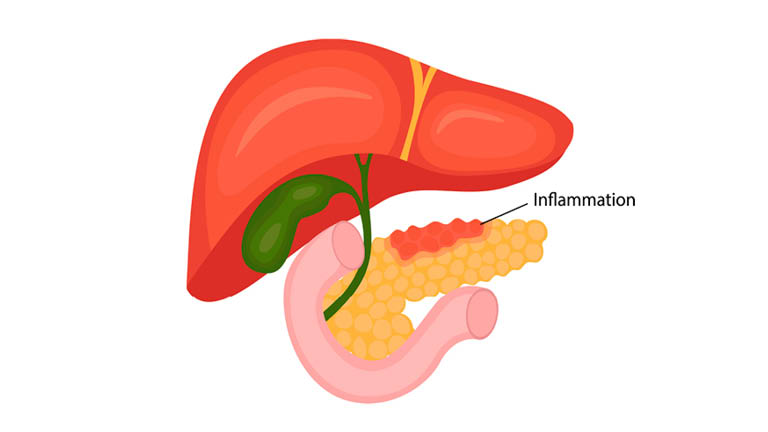

What Is a Pancreatic Neuroendocrine Tumor?
Pancreatic neuroendocrine tumors (pNET) are a type of cancer that occurs in the hormone-producing cells of the pancreas. It occurs when changes (mutations) occur in the DNA of cells. As a result of the changes made on DNA by mutations, cells can grow out of control and subsequently become a mass of cancerous cells and form a tumor. In some cases, cancer cells can become dislodged and spread (metastasize) to other organs, such as the liver. In many pancreatic neuroendocrine tumors, the cause is unclear.
